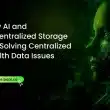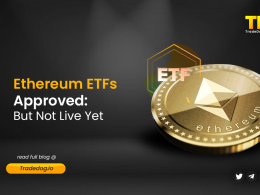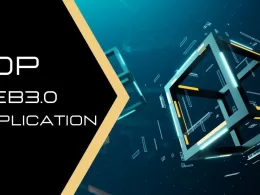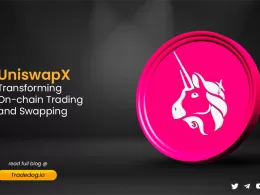Quick Links
Bitcoin stands as a pioneer but grapples with scalability and transaction fee challenges. As of February 11, 2024, the average Bitcoin transaction fee was ~$4.59, with spikes during network congestion. In 2021, the fee reached an all-time high of ~$59.8. This variability, especially for small transactions, hinders Bitcoin’s widespread adoption. Enter rollups – a promising Layer 2 scaling solution poised to revolutionize the Bitcoin ecosystem. They aggregate batches of transactions into a single transaction posted to the Layer-1 Bitcoin blockchain. Instead of each transaction incurring a fee, a split fee is charged to the entire batch, significantly reducing costs.
Understanding Rollups
Figure: Rollups Infrastructure
Rollups are scaling solutions for layer-1 blockchain networks. They operate by taking transactions off-chain, processing them, usually on a layer 2, and bundling multiple transactions into one batch. This batch is then sent back to the layer 1 chain. A smart contract validates that batch of transactions, updating the state of the blockchain.
The importance of rollups for Bitcoin stems from Bitcoin’s design and popularity. As the oldest and most popular blockchain, Bitcoin sees hundreds of thousands of daily transactions. However, it was designed as a simple blockchain that prioritized security within its decentralized framework. This led to a scalability problem, limiting Bitcoin’s ability to process many transactions quickly. Furthermore, Bitcoin’s block size and block time restrictions mean it can only process about three to seven transactions per second. High demand for a limited supply of block space can cause fees to increase when network congestion is high. Rollups can help alleviate these issues by increasing the network’s transaction processing capacity.
Anticipated Impact
- Transaction Throughput Boost: Rollups address Bitcoin’s throughput hurdle, significantly increasing transaction capacity for faster confirmations and smoother payments.
- Efficiency Advancements: Processing transactions off-chain reduces the computational load, lowering transaction fees and making Bitcoin attractive for micropayments and broader financial activities.
- Interoperability Enhancement: Rollups foster collaboration by enabling seamless interaction between Bitcoin projects and users, breaking down silos and driving shared economic activity.
- Privacy Solutions: ZK-Rollups offer enhanced transaction privacy, catering to users valuing anonymity while maintaining security.
- Sustainability Potential: Reduced on-chain transactions could enhance Bitcoin’s environmental friendliness, contingent on various factors and necessitating further research.
Points to Consider
- Impact on Bitcoin’s core principles: While offering benefits, rollups also raise concerns about potential trade-offs with Bitcoin’s core principles like immutability and censorship resistance. Careful consideration and community discussions are crucial.
- Development stage and challenges: Many rollup projects are still under development, facing technical and implementation hurdles. Managing expectations and understanding the ongoing efforts required for successful integration is essential.
- Competition and diversity: The rollup landscape is diverse, with various projects offering different approaches and trade-offs. Understanding these differences and the potential for competition is essential.
Projects Bringing Rollups to Bitcoin
Optimistic Rollups
- Stacks (STX)
Launched in 2018, Stacks offers an EVM-compatible L2 for secure smart contracts on Bitcoin. Transactions are settled on the Bitcoin chain, leveraging Clarity for smart contract development. STX uses a security method known as Proof-of-Stake (PoS) on its second layer (L2). This means it periodically confirms or “checkpoints” its data on the main blockchain. It’s designed with developers in mind, providing a user-friendly experience by maintaining compatibility with Solidity and other existing tools.
- Ordinal (relatively new)
This novel project allows inscriptions of NFT-like data directly onto Bitcoin’s base layer. It utilizes optimistic rollups for scalability and data storage off-chain while relying on Bitcoin for security. It presents a highly innovative application for rollups that extends beyond the realm of smart contracts. However, it does raise some questions about the long-term implications of storage and the potential for network bloat, which refers to excessive data in the network.
- Sovereign and Chainway
Sovereign provides bundled services for developers to build different kinds of rollups. Chainway has announced the open-sourcing of their data availability (DA) adapter, a piece of technology that allows developers to leverage Bitcoin’s security and finality to develop rollups with the Sovereign Software Development Kit (SDK). This launch seeks to enable Bitcoin’s first ZK rollup.
Zero-Knowledge Rollups (ZK-Rollups)
- zkBitcoin (tBTC)
zkBitcoin, also known as tBTC, is a project that aims to integrate ZK-Rollups into Bitcoin. It places a strong emphasis on privacy, to conceal transaction details while still ensuring security. This is achieved through the use of zk-SNARKs, which are cryptographic proofs that allow for efficient verification on the main chain.
- TBD (formerly Tumblebit)
TBD, previously known as Tumblebit, is a project backed by Blockstream. It’s designed to implement a general-purpose ZK-Rollup for Bitcoin, to support smart contracts and decentralized applications (dApps). The project leverages zk-SNARK technology from Zcash, which is known for its efficient proofs and privacy features. A key focus of TBD is interoperability, meaning it’s designed to work seamlessly with the main Bitcoin chain and other Layer 2 solutions.
- Chainway & Kasar Labs
Chainway and Kasar Labs are two projects that have recently made significant strides in the field of ZK-Rollup development for Bitcoin. They have achieved this by open-sourcing Data Availability (DA) adapters, which are tools that allow developers to build various types of ZK-Rollups on Bitcoin. This leverages the security and finality that Bitcoin provides.
These projects represent a collaborative effort aimed at accelerating the development of ZK-Rollups for Bitcoin. Each project has developed its own Sovereign SDK, which is a set of tools for constructing roll-ups.
Future Outlook
The integration of rollups into the Bitcoin network could have profound implications. By reducing transaction fees and increasing throughput, rollups could potentially transform Bitcoin into a more efficient and accessible digital asset. This could lead to a surge in adoption, particularly for micro-transactions, which have traditionally been hindered by high transaction costs.
From a technical perspective, rollups could significantly enhance the performance of the Bitcoin network. For instance, Optimistic Rollups, one type of rollup solution, can theoretically increase the transaction throughput of the Bitcoin network to over 2000 transactions per second (TPS). This is a substantial improvement compared to the current average of 4.6 TPS. Similarly, ZK-Rollups, another type of rollup solution, can provide even higher throughput, along with additional privacy benefits.
In conclusion, the future of Bitcoin could be significantly influenced by the implementation of rollups. By addressing the critical issues of scalability and high transaction fees, rollups have the potential to drive the next phase of growth and innovation in the Bitcoin ecosystem. As we move forward, it will be interesting to monitor the development and adoption of these technologies, and the impact they will have on the broader cryptocurrency landscape.









